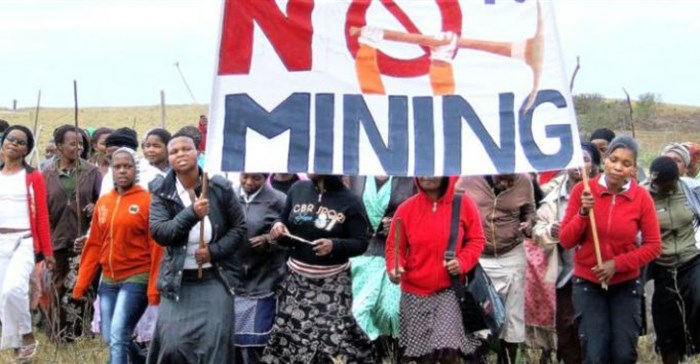
Top stories




EntrepreneurshipHow SMEs can build AI-ready businesses starting with the right technology foundation
Sudesh Pillay, WhyMAcForSME 1 hour


More news























The organisation was responding to a meeting on 8 January between lawyers representing the Amadiba Crisis Committee and the Minister of Mineral Resources, Gwede Mantashe.
“By far the majority of households – 68 out of 72 – in the planned mining area are part of the litigation against the state that was ruled on by the North Gauteng High Court, and in which Bench Marks Foundation was the final applicant. The state was the respondent in this case and has appealed the court’s findings. For it to approach the households in question at this point would be an unacceptable act of intimidation,” says John Cape, Bench Marks executive director.
“The Amadiba Crisis Committee (ACC), which represents the majority of households in the area, has made it very clear that the application by Australian company Transworld Energy and Mineral Resources (TEM) should be dismissed and a moratorium on mining in the area should be declared.”
Capel says that the High Court’s judgment was very clear in spelling out the rights of communities in respect of mining: “What the court is saying is that proper administrative justice must take place; that communities must be fully informed and give consent.
“The North Gauteng High Court said that the Department of Mineral Resources (DMR) cannot grant a mining right in terms of the MPRDA unless they comply with certain provisions. The main provision is compliance with the Interim Protection of Informal Rights to Land Act of 1996 (IPILRA). The court declared the DMR is obliged to obtain the full and informed consent of the Umgungundlovu community, as holder of rights to land, prior to granting any mining right to the mining company concerned.
“The court said that the Minerals Petroleum Resource Development Act must be read together with IPILRA in keeping with the purpose of IPILRA to protect the informal rights of customary communities that were previously not protected by the law. Thus they may not be deprived of their land without their consent, and must be placed in a position to consider the proposed deprivation and be allowed to take communal decisions in terms of their custom to give consent or not.”
Capel adds that communities seldom benefit from mining, but face all the negative impacts of mining, from land loss, land degradation, air quality and health problems, water contamination, lack of access to clean water, and a host of airborne diseases.